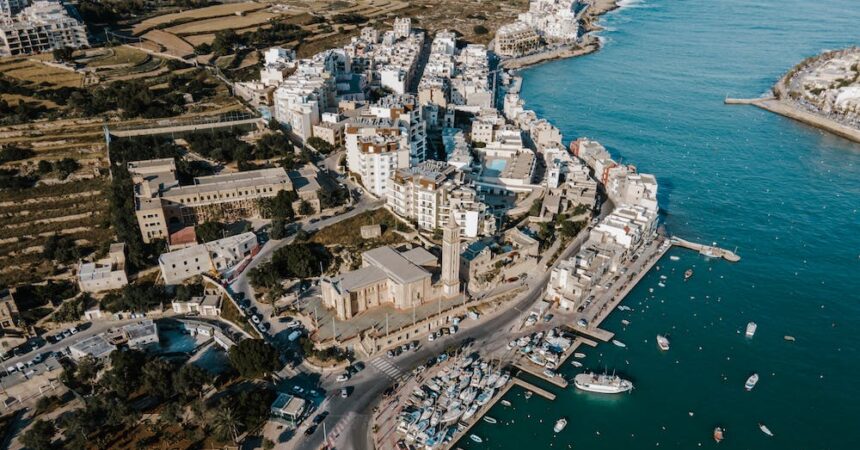In recent years, the Maltese government has tried to position the country as a hub for digital nomads, but a recent survey on its attractiveness for remote workers highlights several gaps, including online safety, a high cost of living, and personal rights.
Regarding social safety, the index looks at both social and security aspects of working and living remotely, including crime, equity, inclusiveness, and access to human rights.
Malta did not perform well in this sector, with the report stating, “Malta still needs a lot of growth” after it ranked 33rd globally.
In particular, it ranked 20th for social safety, 9th for inclusiveness, and 41st for personal safety.
“A country with a high Social Safety score has low crime rates as well as high social inclusivity and a good standard of ensuring human rights protection,” the report, conducted by cyber security company Nordlayer, methodology states.
It also fared poorly regarding the cost of living, ranking 77th. With the report describing the costs as “high”.
The cost of living has spiralled in recent years with inflation, particularly regarding food and rent, putting more households at risk of poverty. Furthermore, one in six of Malta’s workforce live on less than €1,000 per month, leaving them struggling to afford basic necessities.
Malta also dropped the ball regarding cyber safety, a key consideration for remote and online workers.
In 2022, it was found that Malta came last out of all EU member states in its cybersecurity index score due to the proliferation of specific cyber threats such as spoofing, account theft, and malware.
In 2016, the Maltese government launched its Cybersecurity Strategy, but since then, things have gotten worse, according to multiple international and independent reports.
“Malta still has room for growth until it becomes a perfect work destination. It ranks 42th in the global index overall,” the report found.
In the overall index of 108 countries, Malta finds itself next to Latvia and Switzerland. It is outperformed by Singapore, Croatia, Czechia, the UK and Slovakia.
Bottom of the list was Angola, beaten by Zimbabwe, Mozambique and Honduras, while at the top was Denmark, then the Netherlands, Germany and Spain.
‘Ever-growing nomad family’
The Residency Malta website, a government portal providing information on different types of residency programmes, pushes the country to be a premier destination for digital nomads.
“Since then, Malta has become a multi-cultural, cosmopolitan country hosting an ever-growing nomad family. Pubs and bars now heave with hip expats and locals, meeting up for after-work drinks in the early evening,” it states.
It continues that Malta ticks the boxes for good infrastructure, connectivity, communication in English, and ‘island life’. It also mentions it has a “chequered history of settlers and is no stranger to foreigners”.
In 2021, Malta launched its Nomad Residence Permit at the cost of €300, with Parliamentary Secretary for Citizenship Alex Muscat describing it as a “profitable economic niche”.
“We estimate that a digital nomad spends roughly €30,000 a year in our country, which would put us close to what tourists spent here in 2019,” he said.”One digital nomad spends in a year roughly what 260 tourists would spend in a day.”
Recent data shows that around 1,000 people have applied for Malta’s digital nomad visa.
Despite these pushes, Malta struggles to retain or even attract foreign workers. Data from 2020 shows that foreigners are leaving Malta sooner than planned due to the high cost and poor quality of life.
Furthermore, expat groups on Facebook are littered with posts from people leaving or looking to leave due to construction, pollution, traffic, overcrowding, power cuts, inflation, noise pollution, and rising rental costs.













I eagerly await Maltese comments ‘go back to your country’. Perhaps many should simply leave, should they find a suitable place, Europe is big enough. Let’s leave the Maltese to arrange their own country the way they want to (they are certainly entitled to).
PS good luck to businesses replacing expat employees with local labour 😉
PPS good luck to landlords and the property market.
The reason why everything has gone up
in price is because of the influx of foreigners, every foreigner is a meal ticket for the greedy, landlords, and cheeky employers, its a trend which won’t last long that’s for sure, and eventually all foreigners will have to seek employment in other parts of Europe, well have nothing left to intice you to our shores, and that’s the day 99% of Maltese are hoping for, and the day 100% are sure will come,
Lack of electricity is a real dealbreaker, this is one of the reasons we are considering moving. Being without power for hours and days during working hours, the internet then also slows to a crawl, even if I have battery backups.